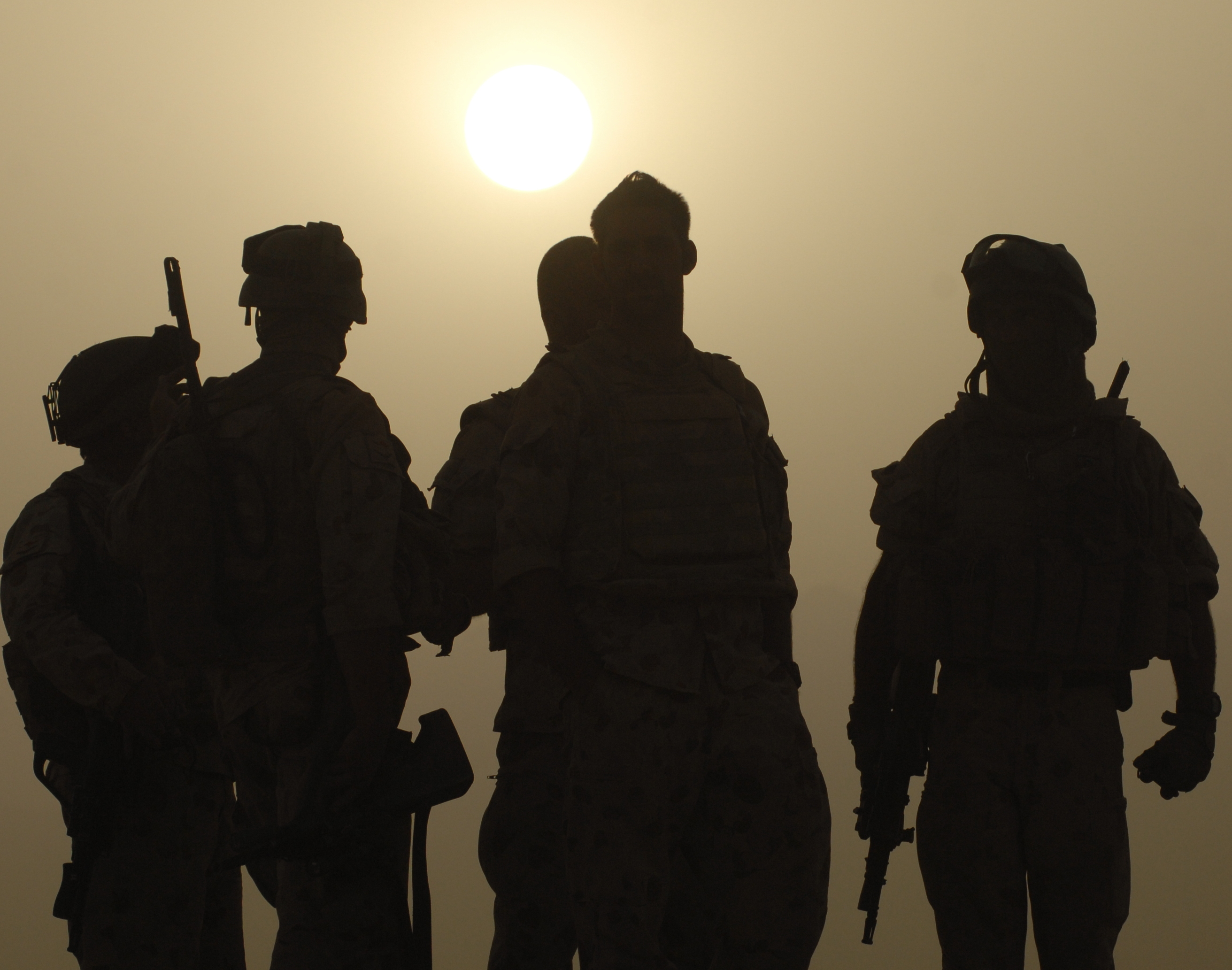Junior officers know the ‘hurry up and wait’ phenomenon well. Common conversations during these delays range from the first thing you’ll eat when you get back from field to what TV shows you watched as kids. I grew up in country Australia where only snowy pictures on the ABC were available. While city kids watched Teenage Mutant Ninja Turtles on commercial TV, country kids were left with the ABC News and episodes of the Bush Tucker Man. The Bush Tucker Man – Major Les Hiddins – was therefore a staple in my childhood and the toughest person I knew outside my country town. For those with limited knowledge of the prowess of the Bush Tucker Man, he was the Bear Grylls equivalent of his day. I know it’s favouritism, but I would say Hiddins remains the hardier of the two as he came with a rugged slouch hat and a great Aussie accent.
I was still a devout watcher of the ABC in 2002 when an Australian Story on Hiddins and Vietnam Veterans aired. I watched as this bush legend from my childhood discussed his Post Traumatic Stress Disorder (PTSD). I was an Officer Cadet at the time and PTSD was a term I had heard but did not understand. PTSD was not widely discussed and the topic of officers with PTSD was not discussed at all. It took a high profile example to start the discussion many years later.
While I’m reminiscing… skip forward quite a few years and I remember another ‘hurry up and wait’ period when I was an instructor at Duntroon. Before the cadets could bring out their trusty pack of cards, adlib tactics instruction commenced in order to make use of the delay. It’s a well-known move for cadets to start asking their instructors about their careers in order to divert attention from answering impossible questions on tactics. It was particularly well played by the cadets in this instance. I remember this question from one cadet: “What do you think will be a challenge we will face as junior officers that you didn’t face when you were a junior officer?” Simple enough question and a discussion on future warfare ensued. My answer was slightly different: “I think there’s a chance you’ll have a boss with PTSD”.
Let me refer to Hiddins and his thoughts:
“To me it came as a bit of a shock to hear that down in later life we had so many vets in such poor health, and in particular, mental health – it was everything from anger outbursts to emotional instability to very high divorce rates, a lot of suicide, basically, depressions, and that sort of thing. The vets describe PTSD as if with a bit of a sense of humour, they call it ‘falling off my perch’. When you’re trying to go to sleep at night, you’re just about nodding off and then ‘bang’, you’re awake again, and you do that 20 or 30 times before you finally drop off to sleep. Now, that never happened to me until only a couple of years ago. I don’t think anyone is immune from it, and I certainly have not been immune from it.”
The lack of immunity but the individuality of timing when the anger outbursts or emotional instability may start is difficult to understand. A framework to think about this may be as follows: everyone is handed an alarm clock once deployed. An alarm time is set depending on your deployment role/job, individual experience, your support network on return and an endless list of other factors. Some people won’t know they have been handed an alarm clock and will return to life strengthened from the experience. Their alarm may never be sounded. Others will hear the ticking of the countdown getting louder and through the help of their support networks will be able to press snooze a few times throughout their life. Others will only discover their lack of immunity when the alarm has fully sounded. This is not a perfect analogy and I am certainly not an expert but it seems to help when discussing the need to look after each other despite many veterans being ok right now.
As a junior officer it is unlikely you knew your boss before they deployed, so unlike their family and friends you have no comparison of ‘before and after’ personality. However, you are likely to spend more time with your boss than they do with their family and friends. We know this time reality exists with our own subordinates which is why we look out for them, but what about looking up? Is your boss angry with you because you have genuinely stuffed up, does he/she just have a dominating command style, or is this latest anger outburst coming from another source? Good luck calling a superior on this and this is why I stated that having a boss with PTSD may be a challenge junior officers face.
Mates, family and chain-of-command are critical as listeners for the ticks on the alarm clock getting louder. As Platoon/Troop Commanders you will most likely be working with your Officer Commanding/Company Commander to support your soldiers with PTSD and mental health injuries. Who then is looking after the chain-of-command? While everyone has a boss, the further up you go the more the loneliness of command is amplified. Same too with who is looking after the chain-of-command and who is going to ask RUOK? Like the definition of the contemporary veteran I have no one-size-fits all answer but who cares for your boss (your Sergeants, Warrant Officers and Officers) as they look after everyone else is a question worth asking and discussing this new year.

